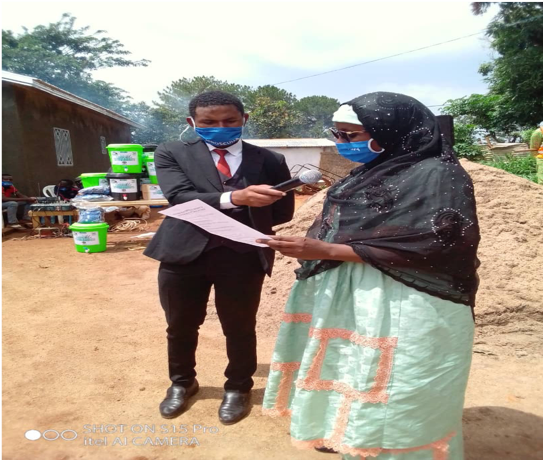This is a report provided by REPALEAC published as is.
THE NETWORK OF INDIGENOUS PEOPLES AND LOCAL POPULATIONS FOR THE SUSTAINABLE MANAGEMENT OF THE FOREST ECOSYSTEMS IN CENTRAL AFRICA (REPALEAC)
UPDATE PAWANKA EMERGENCY FUND – PROJECT LAUNCHED IN CAMEROON
The activities inscribed within the framework of the PAWANKA Emergency Funds to support indigenous peoples in the fight against Covid-19 were officially launched in Cameroon yesterday in two localities: Didango in the West region and Ngaoundere in Adamaoua region. REPALEAC, the regional network of indigenous peoples of Central is the beneficiary of the project and is working with, MBOSCUDA and OKANI, member associations of REPALEAC in Cameroon to implement the programme.
The project intends to supply 5.000 facemasks to 5000 Indigenous people in Cameroon and DRC, install handwashing buckets of 30 liters in 20 Indigenous people’s communities and Organize 20 Indigenous people’s community leaders into a smaller group to monitor the COVID-19 in the communities. The project is first of its kind to benefit the indigenous peoples in these two countries since the declaration of Covid-19 in the two countries back in February 2020. It is important to note that in Cameroon for example, there are more than 12.000 C ovid-19 cases.
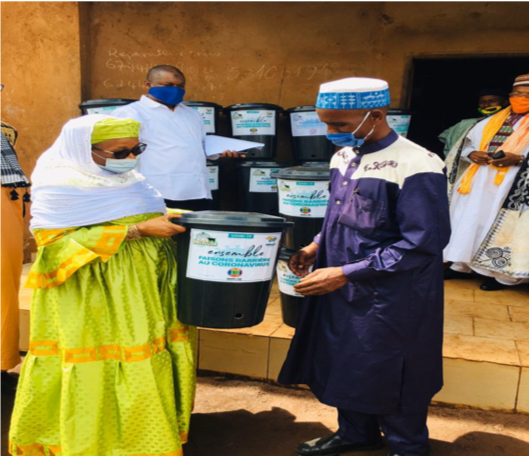
The official launching ceremonies were organized by the REPALEAC and its members witnessed the participations of government authorities of the Ministry of Social Affairs (the Ministry in charge of indigenous Peoples in Cameroon) and the Ministry of Public Health. Media were also invited and most interesting was the present of the Cameroon National Radio and Television (CRTV). During the ceremonies, REPALEAC and its members presented the materials and presented the donor, PAWANKA, which the gouvernment highly appreciated. Also, indigenous peoples leaders, women and youths were invited to take part in the launching ceremony within the strict respect of social distancing and other covid19 prescribed rules.
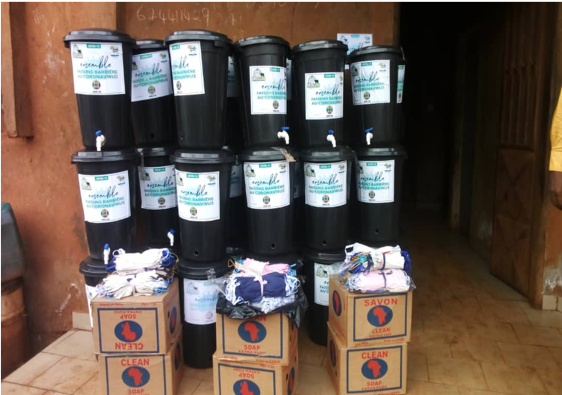
REPALEAC and its members exposed to the gouvernment the challenges indigenous peoples are facing during the Covid-19 period and also the deliberate act of the government to sidelined indigenous peoples in the response plan of Covid-19. It was made known to the government that indigenous peoples don’t have access to information, medical facilities and they have not receive any material support from the gouvernment. The ceremonies were also opportunities to tell the gouvernment authorities about the human right violations and discrimination indigenous peoples are facing. Also, the ceremonies help to raise awareness on the ravaging effects of the Covid-19 pandemic. The community leaders present during these occasions will carry home awareness raising messages.
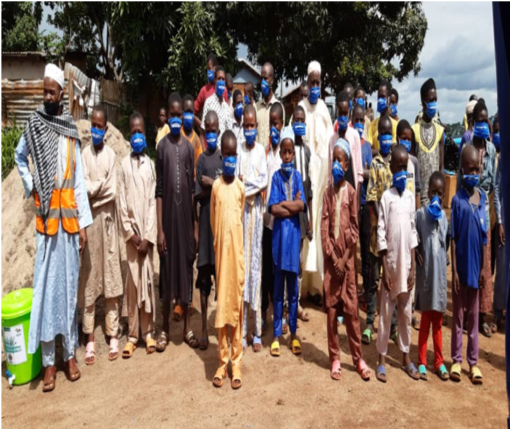
During the ceremony, REPALEAC mentioned the fact that since mid-2019, the pastoral Indigenous peoples known as the Mbororo are been targeted by the separatist’s fighters of the two minority English speaking regions of Cameroon in which MBOSCUDA has documented the following cases:
· 246 Indigenous peoples killed by the Separatists
· 3200 wounded victims
· About 500.000 USD paid as ransoms to release kidnapped victims especially women and children
· 2600 cattle taken away
· 475 homes of the Indigenous Peoples burnt down completely
· 11 755 Indigenous peoples displaced and living in critical conditions
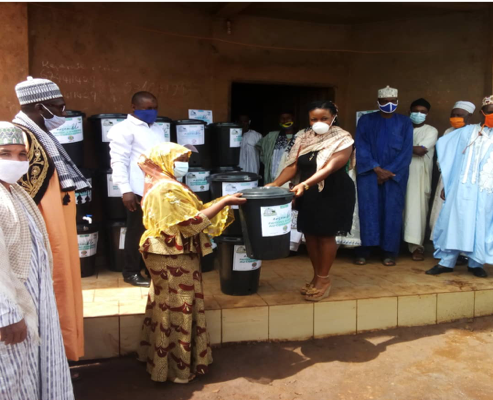
As of June 20, 2000, facemasks have been produced by indigenous women in Cameroon within the framework of the PAWANKA support, 20 handwashing materials have been purchased and ready for installation, and 15 indigenous community workers engaged to sensitize the community on Covid-19 and report any suspected cases. The distribution of all these materials to the community in the indigenous people’s settlements begins on the 21 June 2020.
With the rapid increase of Covid-19 cases in Cameroon (an average of about 400 cases daily) and about 30 IPs already infected. With the government obligatory measure of wearing facemasks when going out, increase the demand of facemasks, hence, its scarcity is felt in the market. Therefore, there is a need to support the production of about 500.000 facemasks and distribute to indigenous peoples so that they can continue doing their daily activities and protect themselves. This can be possible if the indigenous women who produced the current facemask can be supported.
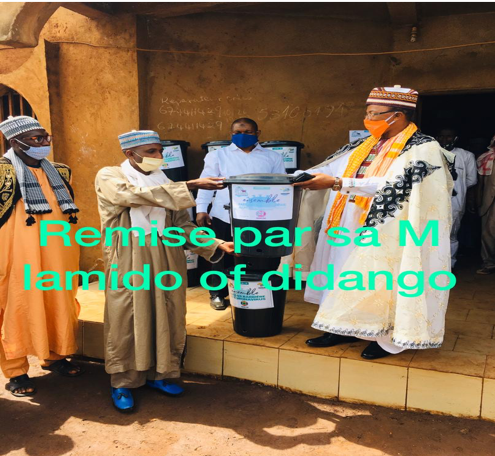
Another important material in the fight against covid-19 is handwashing soap which is very expensive and rare for the indigenous people’s community. However, there is a group of IPs women who were trained in making local soap and are also ready to contribute if supported and coordinated. Therefore, we will need to explore other opportunities and support indigenous peoples especially women in the fight against Covid-19. By supporting them as we have done with the production of 2.000 facemasks, it enhances their livelihoods and dignity in the community and they save as models to other indigenous women and girls.
As concerned visibility, all materials and presentations carried the logo of PAWANKA Funds and a brief presentation was made on what PAWANKA Funds stands for and its mission (information gotten from the PAWANKA website). The National Radio and television with about 5 million audiences in Cameroon reported on the project including 05 private media were also invited to cover the events. There has been publication on Facebook and all major platforms such as WhatsApp both at the National and regional levels.
